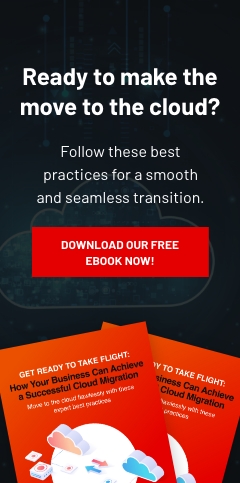Many small- to medium-sized business (SMB) owners are aware of the potential cyberthreats that can attack their network. However, not all of them can determine which cybersecurity solutions they need to keep their company information safe from a cyberattack.
In fact, most business owners also don't know that 90% of data breaches result from human error. For example, when employees access a harmful site or click on a phishing email, they're opening up your company to a cyberattack.
To strengthen your online defenses, you'll need an effective cybersecurity policy and the proper tools to reinforce that policy. This is where URL filtering comes in.
What is URL filtering?
URL filtering is a technology that determines which websites and online resources your employees can access. This minimizes the risk of them accidentally entering a malicious site that could potentially infect your network with malware.
URL filtering does this by comparing the sites your employees visit against a filtering database, granting or prohibiting access to specific sites depending on the type of filtering used.
What are the types of URL filtering?
There are two types of URL filtering businesses use: blacklists and whitelists.
#1 Blacklists
A blacklist is a list of sites your employees are prohibited from accessing. An example would be social media sites. Some people tend to spend too much time on social media sites, which results in lower productivity. By adding those sites to a blacklist, your employees will get a "blocked" message whenever they try to access such sites.
#2 Whitelists
Whitelists contain a list of sites that your employees can access. Compared to a blacklist, a whitelist is more restrictive and will only allow access to sites related to the everyday tasks of your business.
What are the benefits of URL filtering?
Still not convinced of the apparent importance of a URL filter? Here are the benefits of implementing URL filtering into your system.
#1 Prevents phishing attacks
One of the biggest threats SMBs face is a phishing attack. In this type of attack, hackers impersonate a trusted person or company and send out emails to unsuspecting employees. These emails contain a link that will either download malware or take users to a site where a cybercriminal can obtain their login information.
A URL filter can stop a phishing attack by preventing your employees from visiting any compromised sites sent through the phishing email. Any attempt to redirect your employees to a dangerous site will instantly be blocked.
#2 Blocks exploit kits
Exploit kits are programs created by hackers to identify vulnerabilities in web browsers, browser extensions, and plugins. These vulnerabilities are exploited when a user accesses a malicious site using an unsecured browser. When these vulnerabilities are found, the exploit kit will then automatically download malware onto your computers to steal your data.
Using a URL filter will prevent your employees from visiting and accessing such dangerous sites.
#3 Helps increase productivity
One of the biggest killers of productivity is distraction. When your employees visit websites unrelated to your business, such as gambling sites, adult sites, social media sites, and file sharing sites, they're hurting the overall productivity of your company.
Internet misuse in the workplace accounts for around $63 billion in lost productivity every year. That's why it's so important to limit what sites your employees are allowed to access.
Even using the most basic level of URL filtering can block any site that may potentially put your business in danger. This will help improve your company's cybersecurity, control bandwidth, and enhance productivity.
If you're looking to improve your company's cybersecurity, you can partner with a trusted managed IT services provider (MSP) like Complete Document Solutions. Our IT experts will protect your business from malware and hackers that can interfere with your productivity. If you want to know if your business needs an MSP, download our free eBook today.



Leave a comment!